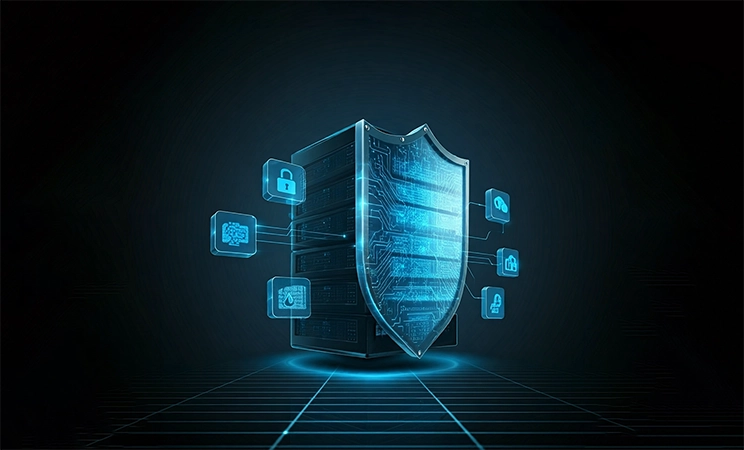5 Critical Security Features Your Web Host Must Provide in 2024

In today’s digital landscape, choosing a web hosting provider isn’t just about uptime and speed—it’s about protecting your business and customer data from increasingly sophisticated cyber threats. As we navigate through 2024, here are five non-negotiable security features your web host must provide to ensure your online presence remains secure and resilient.
1. Advanced DDoS Protection
Distributed Denial of Service (DDoS) attacks continue to grow in both frequency and complexity. Your web host should offer:
- Real-time traffic monitoring and filtering
- Multi-layer DDoS protection
- Automatic threat detection and mitigation
- Network-level flood protection
- Zero-day attack prevention
Modern DDoS protection should be able to handle both volumetric attacks and more sophisticated application-layer attacks without affecting legitimate traffic.
2. Automated Backup Systems
Data loss can occur due to various reasons, from cyber attacks to human error. Your host should provide:
- Daily automated backups
- Multiple backup locations
- Point-in-time recovery options
- Easy restoration process
- Minimum 30-day backup retention
- Option for on-demand backups
The backup system should be fully automated and regularly tested to ensure data can be restored quickly when needed.
3. SSL/TLS Certificate Management
With Google marking non-HTTPS sites as “Not Secure,” SSL certificates are more critical than ever. Look for:
- Free SSL certificate inclusion
- Automatic SSL renewal
- Support for different SSL types (Domain Validated, Organization Validated, Extended Validation)
- Easy certificate installation
- SSL vulnerability scanning
- Support for the latest TLS protocols
Your host should manage the entire SSL lifecycle, ensuring your certificates never expire and remain up-to-date with current security standards.
4. Web Application Firewall (WAF)
A robust WAF is essential for protecting against common web exploits. Your host should provide:
- Protection against OWASP Top 10 vulnerabilities
- Custom rule creation
- Real-time threat intelligence
- IP reputation filtering
- Rate limiting capabilities
- Regular rule updates
- Bot protection
The WAF should be continuously updated to protect against new threats and attack patterns while maintaining minimal false positives.
5. Security Monitoring and Incident Response
Proactive security monitoring and swift incident response are crucial. Ensure your host offers:
- 24/7 security monitoring
- Real-time alert systems
- Malware scanning and removal
- File integrity monitoring
- Security log management
- Incident response team availability
- Regular security audits
- Compliance reporting
Additional Considerations
Beyond these core features, consider whether your host provides:
- Regular vulnerability assessments
- Network segregation
- Container isolation (for shared hosting)
- Access control mechanisms
- Two-factor authentication for control panel access
- Regular security patches and updates
Why These Features Matter
Implementing these security features isn’t just about preventing attacks—it’s about:
- Protecting your brand reputation
- Maintaining customer trust
- Ensuring business continuity
- Meeting compliance requirements
- Reducing potential financial losses
Conclusion
As cyber threats evolve, your web hosting provider must stay ahead of the curve. Don’t compromise on these essential security features when choosing a host. Remember, the cost of implementing these security measures is minimal compared to the potential cost of a security breach.
Take time to evaluate your current hosting provider against these criteria. If they’re falling short, it might be time to consider switching to a provider that takes security seriously in 2024 and beyond.